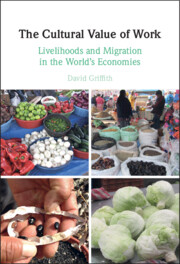Book contents
- The Cultural Value of Work
- The Cultural Value of Work
- Copyright page
- Dedication
- Contents
- Figure
- Tables
- Preface
- Acknowledgments
- Introduction
- Part I Labor in Ethnohistorical Settings
- 1 It Isn’t Santa Claus Coming to Town
- 2 Dispossession and Conscription
- 3 Labor for Forests
- Part II Values of Forms of Labor
- Part III Work and Labor in Economic and Anthropological Theory
- Appendix A A Note on the Qualifications of the Author
- References
- Index
3 - Labor for Forests
European Expansion through Naval Stores
from Part I - Labor in Ethnohistorical Settings
Published online by Cambridge University Press: 14 July 2022
- The Cultural Value of Work
- The Cultural Value of Work
- Copyright page
- Dedication
- Contents
- Figure
- Tables
- Preface
- Acknowledgments
- Introduction
- Part I Labor in Ethnohistorical Settings
- 1 It Isn’t Santa Claus Coming to Town
- 2 Dispossession and Conscription
- 3 Labor for Forests
- Part II Values of Forms of Labor
- Part III Work and Labor in Economic and Anthropological Theory
- Appendix A A Note on the Qualifications of the Author
- References
- Index
Summary
In the early 18th century, around 15,000 people fled southwestern Germany for the British Isles with the hopes that Queen Anne would send them to North America. Once they reached England, they established refugee camps near the Thames in and around London, raising fears of disease, competition of refugee artisans with locals, and other issues. Feeling the pressure, Queen Anne supported three resettlement schemes: one to shore up the Protestant presence in Ireland and two to produce naval stores (tar, pitch, turpentine, etc.) in North Carolina and New York. Naval stores were strategic materials used for shipbuilding and consequently European expansion around the world, yet their production involved onerous work in pine forests. The British, having denuded most of their forests for fuel and building materials, were dependent on Scandinavian sources for them. Although the two resettlement schemes targeting North America failed, they constituted early experiments with deploying immigrant labor for difficult, dangerous tasks in the New World.
Keywords
- Type
- Chapter
- Information
- The Cultural Value of WorkLivelihoods and Migration in the World's Economies, pp. 54 - 76Publisher: Cambridge University PressPrint publication year: 2022

